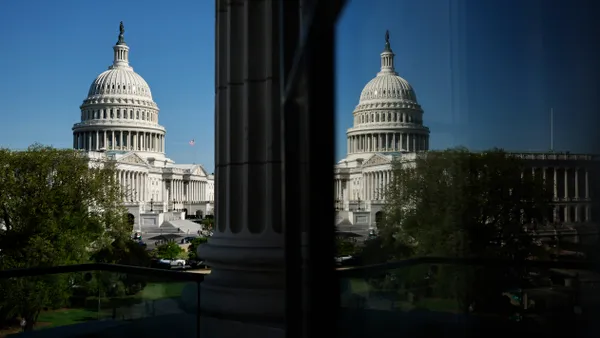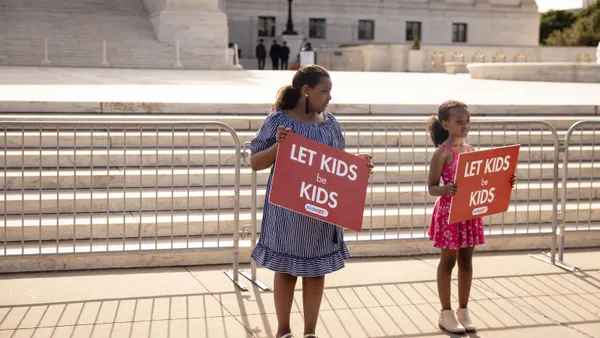Dive Brief:
- The U.S. Department of Justice has sued six states over laws that allow in-state tuition rates and scholarships for students regardless of their immigration status. The latest legal challenge was filed Thursday against California for its “California Dream Act."
- The lawsuit seeks to enjoin California laws that allow state residents to receive in-state tuition regardless of immigration status. The lawsuits — also filed against Minnesota, Texas, Kentucky, Illinois and Oklahoma — could impact tuition for dual enrollment, adult education, and career and technical education training programs.
- "Federal law prohibits aliens illegally present in the United States from receiving in-state tuition benefits that are denied to out-of-state U.S. citizens," the Justice Department said in its lawsuit, which is challenging the states under the supremacy clause. "There are no exceptions."
Dive Insight:
The lawsuits come in light of a February executive order prohibiting federal resources for undocumented immigrants and as the U.S. Department of Education has implemented the order to restrict education-related programs.
As part of those restrictions, which were part of a coordinated effort across agencies, students could be required to undergo a citizenship and immigration status check to qualify for tuition for dual enrollment and similar early college programs for high-schoolers.
According to the Trump administration, that's “because those programs provide individualized payments or assistance beyond that of a basic public education."
The administration's implementation of the executive order also restricted Head Start, the federal early childhood education program meant to level the playing field for low-income families, to “American citizens." That policy change was successfully challenged in court in multiple lawsuits and is currently on pause in states that sued the government.
However, other program areas impacted by the Education Department's enforcement of the order are still in effect in some places, including high school students’ eligibility for college-level and career courses.
“California is illegally discriminating against American students and families by offering exclusive tuition benefits for non-citizens,” said U.S. Attorney General Pamela Bondi in a Thursday statement, adding that her department "will continue bringing litigation against California until the state ceases its flagrant disregard for federal law.”
California Gov. Gavin Newsom's office, however, called the DOJ's efforts "meritless, politically motivated lawsuits."
"Good luck, Trump," said Marissa Saldivar, Newsom's spokesperson, in an email to K-12 Dive. "We’ll see you in court."
The office maintains that its tuition exemption applies to all residents who meet the criteria, regardless of where they were born, and it is not discriminating against U.S. citizens.
Out of the states sued so far, Texas and Oklahoma have complied, with Texas suddenly ending a 24-year-old law within hours of the Justice Department filing a lawsuit in June.
Prior to the Justice Department's lawsuits, 25 states and the District of Columbia allowed in-state tuition for undocumented students, according to the Higher Ed Immigration Portal, which tracks the issue. That number has fallen to 22 in addition to Washington, D.C.
There are an estimated 620,000 undocumented K-12 students in the United States, with most states home to thousands of such students, according to 2021 data from Fwd.us.
According to federal data, nearly 2.5 million high school students were enrolled in at least one dual enrollment course from a college or university in 2022-23.






 Dive Awards
Dive Awards







